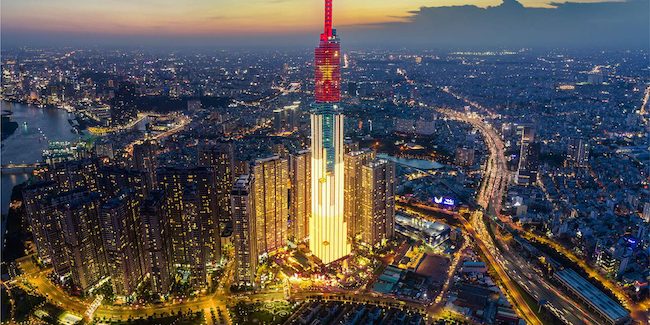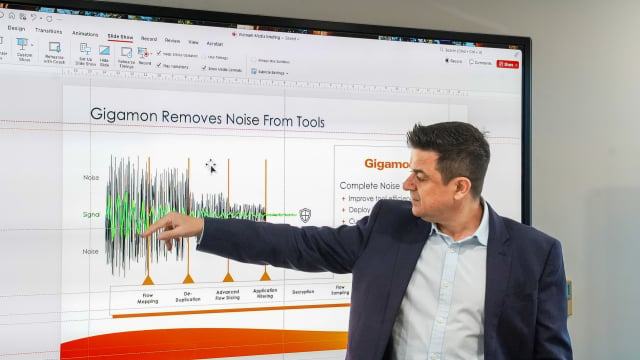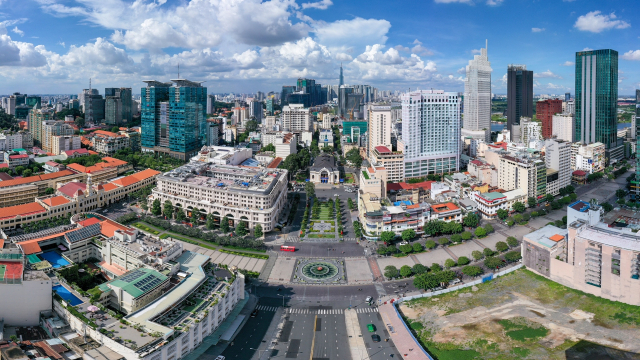Leader Talk
CABA and VACD join hands to tackle unexpected challenges
The MoU signing between the China-ASEAN Business Alliance (CABA) and the Vietnam Association of Corporate Directors (VACD) is expected to foster and accelerate the integration of ASEAN through commercial and cultural activities, supporting two sides’ members to overcome challenges as well as gaining more opportunities.

Vietnam’s shift from a centrally planned to a market economy has transformed the country from one of the poorest in the world into a lower middle-income country. World Bank says that the country now is one of the most dynamic emerging countries in the East Asia region.
Especially, chairman of China-ASEAN Business Alliance (CABA) Tan Chong Huat states that in the region, recovery prospects look brightest for Vietnam amidst the evolving Covid-19 pandemic. Vietnam has convincingly contained the outbreak and will therefore likely see a stronger recovery than other countries in the region.
“Vietnam is expected to be the only Southeast Asian country to record positive growth this year,” says Tan.
The latest forecast of the Asian Development Bank (ADB) shows that Vietnam's economic growth is expected to slow to 1.8 per cent this year, and then rebound to 6.3 per cent in 2021.
Even before the pandemic, Vietnam was ranked among the most cost-competitive manufacturing hubs in the world. Despite being seen as a ‘trade war winner’, Vietnam has many merits on its own which position the country as an ideal place to do business and attract investment: skilled and low-cost labor force, growing infrastructure, stable government, safe environment, free trade agreements.
However, to ensure sustainable growth and development, Tan says, Vietnam must do more than keeping costs low and find ways to move its economy up the value chain and embrace Industry 4.0
In the context of lockdown amidst the Covid-19 pandemic, Vietnam will need to explore ways to boost its own domestic industrial base as a buffer against global crises. Besides, good preparation for the pursuit of new-generation foreign direct investment (FDI) is crucial.
“Greater connectivity through improved infrastructure, more vocational training, and greater ease of doing business would help Vietnam stand out in the competition for FDI,” says Tan.

More broadly, the Covid-19 pandemic has also created a sense of urgency to strengthen supply chains through diversification, this has led international businesses to speed up their plans to minimized over-concentration/over-dependence risks.
Tan highlights that in order to join the global supply chains, Vietnamese enterprises need to further explore the various trade deals which could boost their business. A study by the Vietnam Chamber of Commerce and Industry found that 71 per cent and 77 per cent of enterprises in Vietnam do not know of, or have only just heard about, the Comprehensive and Progressive Agreement for Trans-Pacific Partnership (CPTPP) or the EU - Vietnam Free Trade Agreement (EVFTA) respectively.
Basing in Singapore, Tan finds that Singapore companies may face the challenge of navigating the business and regulatory landscape in Vietnam. To overcome this, Singapore companies may need to find local partners and talent who understand the business culture and market dynamics.
In that context, the MoU signing between China-ASEAN Business Alliance (CABA) and Vietnam Association of Corporate Directors (VACD) to establish a high-level, non-binding, non-exclusive framework for the cooperation is very significant.
CABA is a non-governmental and non-profit organization that has been established with its mission of promoting greater networking and corporation among businesses in China and ASEAN and facilitate trade, investment, business, and people-to-people connectivity to leverage on the ACFTA, the ASEAN – China Maritime Silk Road and Belt & Road Initiative.
Meanwhile, VACD is a non-governmental and non-profit organization of corporate directors and Vietnamese entities engaging in the corporate governance field. The mission of VACD is to establish and develop corporate governance principals and standards in Vietnam; establish a group of directors.
It is also to improve the capacity of corporate governance and competitiveness of enterprises on corporate governance; protect rights and the legitimate interest of enterprises; propose to the State to promulgate policies related to governance, contribute to improving the business environment and improve the effectiveness and efficiency of enterprise management.
Both organizations are very focused to bring about increased economic activities and cultural exchanges for Vietnam and Singapore between both countries and with ASEAN. They believed that the integration of ASEAN will be fostered and accelerated by commercial and cultural activities as much as from public and governmental efforts.
“This Covid-19 pandemic only serves to remind us that we are not alone and together we can overcome unexpected challenges better”, says Tan.
In the coming time, besides organizing and supporting in sharing and promoting events and activities, the two sides will create opportunities for members of two organizations to exchange and share knowledge, experience, and cooperation in the fields of investment and business.
Networking trips to Vietnam are expected to be soon organized by CABA after Covid-19 with the focus of promoting greater networking and cooperation among businesses in China and ASEAN with a view of facilitating trade, investment, business, and people-to-people connectivity to leverage on the ACFTA, the ASEAN.
Vietnamese eager to travel in aftermath of coronavirus
Vietnam turns semiconductor vision into action
The global semiconductor industry is being reshaped by geopolitical tensions, shifting supply chains, and the surge of digital technologies.
Cutting red tape in APA approvals to speed up tax negotiations
The change in APA approval authority is expected to shorten processing time and enhance business proactiveness in international tax negotiations.
Enterprise cybersecurity is under threat from the inside
As hybrid cloud systems grow more complex, Vietnamese enterprises are struggling to detect cybersecurity threats moving laterally within their own networks.
Breakthrough for the international financial center ambition
The submission of the draft resolution on Vietnam’s international financial center to the National Assembly heralds a new developmental era for the country.
How leadership philosophy redefines hospitality in Nha Trang
More than just running a 5-star resort, Kristian Petersen is redefining the art of hospitality with a humane and sustainable leadership philosophy.
When organic becomes an inspiring wellbeing lifestyle
For Tyna Huynh, co-founder of Drinkizz, organic is not just a food choice but a way of life that fosters a deep connection between people, nature and community.










































